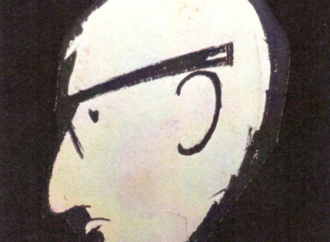The African Union’s new offices in Addis Ababa stand on the site of one of Africa’s most notorious prisons, popularly known as Alem Bekagn or ‘farewell to the world’. For decades, thousands of people suffered and died here, many for simply speaking their minds or for crimes they did not commit. A memorial stone with the inscription “For all the victims of human rights abuses in Africa” marks the site, indicating at the time of its unveiling the AU’s commitment to human rights and democracy.
When the AU Assembly gathered here to condemn the International Criminal Court and to pass a resolution demanding immunity for all African leaders while in office, the sentiment of the memorial appeared forgotten, and the tragic irony of authorizing abuse from the site of Alem Bekagn lost on the assembled dignitaries.
Selectivity cannot become a rationale for impunity.
But it is not only the AU’s commitment to justice that is being tested by the current controversies around the International Criminal Court (ICC). Western governments too have been forced to re-examine their attitude to the ICC in the face of the trials of Kenya’s President Uhuru Kenyatta and Vice President William Ruto. Both are charged with crimes against humanity and for mobilizing and financing ethnic militias in the post-election violence that killed at least 1,300 and displaced more than 600,000 in 2007-08.
Even before the AU resolution, Western leaders worried about the ramifications of trials that will effectively deprive a key strategic ally in the volatile Horn of Africa of its two top leaders for prolonged and undefined periods of time. For some, the importance of east Africa’s biggest economy outweighs concerns over granting impunity to its leaders. The recent al-Shabaab attack on the Westgate shopping mall in Nairobi tipped the scale further in favour of such views. According to The Economist, a draft UN resolution is being circulated among European missions calling for the Security Council to use its powers under Article 16 of the Rome Statute, which established the court, to defer the Kenyan trials for 12 months on the grounds of international peace and security, a ruling which can be renewed repeatedly.
To diffuse this increasingly tense diplomatic deadlock, the ICC announced (barely a week after the AU summit) that President Kenyatta will be excused from full-time attendance at his trial in The Hague. Make no mistake, however, this political struggle over justice is far from over.
For the AU and Kenya, the ICC’s decision does not go far enough. The ruling requires the President to be physically present during the court’s opening and closing statements; at hearings where victims present their views and concerns in person; at the verdict; and at any other sessions determined by the ICC. The AU and Kenya demand that the cases against both the President and the Vice President be postponed, or conducted entirely by video-conferencing. There is also occasional talk about a truth and reconciliation commission replacing the ICC process altogether.
See also:
- Stephen Brown, Transitional Justice as Subterfuge
- David Petrasek, Baird Muddies the Waters: Canada and the International Criminal Court
Nevertheless, the court’s concession to President Kenyatta represents a significant retreat. Its officers have always insisted that presence at the court is non-negotiable, and these two cases have been widely perceived as a test of the court’s ability to force political leaders to face justice. The prosecution at the ICC has indicated that it will appeal the decision, maintaining that nobody—not even sitting presidents—should be immune from prosecution.
What is absolutely certain is that Kenyatta will use every tool available to delay the case for as long as possible. He has a point, as there is no denying the difficulty of running a government from the courtrooms in The Hague. Even if the trials were to alternate so as never to require the two leaders to be absent from Nairobi at the same time, it is hard to see how a lengthy court process would not interfere with the business of running the country. The recent al-Shabaab attack complicates things further, and the Kenyan government now has much to gain from playing up this threat and stressing the need for strong and effective leadership that can partner with global anti-terrorism efforts. In the end, it might fall to the UN Security Council to weigh the international commitment to justice against the desire for security and stability.
For the AU, the problem with the ICC goes beyond the specifics of the Kenyan cases and is embedded in a racialized, anti-imperialist discourse that sees the court as biased against the African continent. Its representatives never tire of pointing out the fact that all the cases currently open at the ICC are against Africans. Thus, for President Kenyatta the ICC is a “toy of declining imperial powers”; and the Ethiopian Prime Minister and AU chairman Hailemariam Dessalegn states that the “unfair treatment’ that Africa has ‘been subjected to by the ICC is completely unacceptable”.
It is true that the ICC’s dealings with Africa have not always been particularly politically astute, and the charge that the current case list is suspiciously selective merits close scrutiny. But selectivity cannot become a rationale for impunity.
Canada’s Sharpest International Affairs Commentary
Don’t miss future posts on the CIPS Blog. Subscribe to our email newsletter.
The obvious losers in this battle are of course the victims of human rights abuses. It bears repeating that most of the cases before the ICC have been referred to the court by Africans themselves, in recognition of the absence of domestic justice. In Kenya, no one has so far been held to account for the post-election violence; and with two of the main accused now occupying the country’s most powerful positions, the chance of any domestic legal address is less than zero. On the continent as a whole, statistics show that between 1990 and 2012 it was governments (not rebels, terrorists or other non-state groups) that were responsible for 85.2 percent of all civilian fatalities from one-sided violence.
The AU resolution sanctions this situation. It remains to be seen if the international community will do the same.









